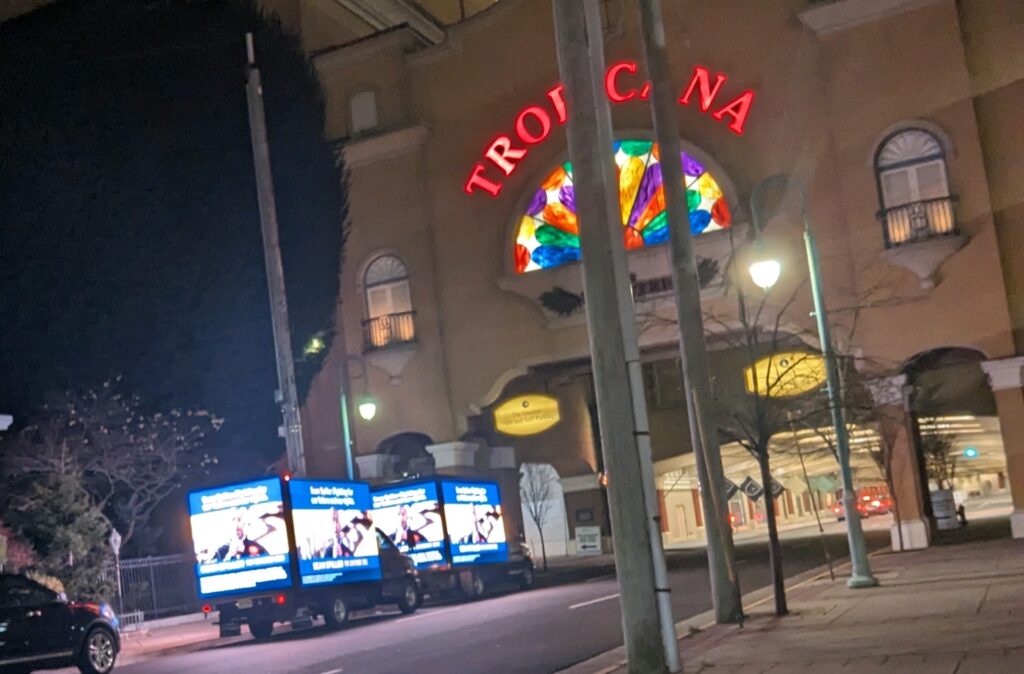The League of Municipalities, the Aesthetics of Power, and Our Civic Destiny

Nowhere else quite encapsulates the microcosm of American civilization and its consequences within the scope of New Jersey like the annual League of Municipalities event held in Atlantic City. In terms of the calendar, it is keenly placed. Just after the national or state frenzy of a general election, depending on the year, and just prior to Thanksgiving, the League is at a confluence of contradictory emotional flows. It is a celebration of New Jersey work while also a demonstration of power, coming off the high or low of the most consequential political ritual that affects them all, and assessing that consequence.
Meanwhile, Thanksgiving is the day where Americans (at least try to) unite with family and friends in the spirit of gratitude, but it can also be a day of dread for many who have to sit down with relatives who, qualified or not, cannot avoid either gloating or bemoaning the outcome of the election at a time when emotions are still running high. Nevertheless, Thanksgiving can also be a respite: it is one of the few holidays that has not actually been commercialized, a whiplash from the casino-land where many of the League events are held. Thanksgiving takes the view of appreciation for what we have and who we are whether we like it or not. Things can always be worse, after all–and may well be, with respect to consequences both at the ballot box and in the halls of power. Still, in contrast to the New Jersey version of Las Vegas, that experience cannot be monetized at the kitchen table, a spirit of togetherness for its own sake. Yet, America has always been an enterprising, commercialist republic and so "Black Friday" immediately follows. As power abhors a vacuum, so does a laser focus on acquisition, the American demonstration of success in a society that rejected titled stewardship and pedigree in the 1770s in the name of pragmatism and alleged Enlightenment.
Enter, then, a kind of sharp correction toward the pursuit of real happiness–away from that menacing uncle or whiny cousin–which must, we are enticed, mean the latest electronic gizmo, distraction device, a literally “shiny object,” or maybe a subscription to a service to allow us to binge watch ourselves into numb comfort from the dizzying, impossible-to-process reality around us. Many of these, conveniently, are found in the stores that permeate the League itself!
As Americans pursue their life, liberty, and pursuit of happiness, those aspirations, and ambitions in the civic realm gather in, curiously, New Jersey's Atlantic Ocean adult theme park. Amid the casinos, where time has no meaning, the lights are always flashing, and (someone’s) money is always flowing, gilded representations of other realities--your choice--surround and cater to these New Jerseyan dreamers. Champions of their respective causes, advocates, self-realized warriors against de Tocqueville’s tyranny of the majority, business interests both benign and malign, and above all, politics, mix and mingle, sometimes blurring into a heady haze from social and political lubricants paid by the glass. All are equal, as Benjamin Franklin had envisioned, within the context of the League, with each company, organization, or other entity its own fiefdom of expertise and clout, amid the restaurants, shops, clubs, and slot machines. But that other most American of characteristics, inequality, prevails as well within those specific confines. Star-power is certainly to be found in the New Jersey political version of Hollywood--a congressman, a candidate; heads turn, hands are shaken, hopes raised, names are quickly forgotten. Such are the foundations of America's self-satisfaction, harkening to the most consistent of power displays whether Pharaonic or at mom’s Thanksgiving table: was it a good spread? Was the booze up to par? Did enough people attend? Will people talk about it once they leave?
These aesthetics of power are, in their own New Jersey way, displayed through the League outside of the actual conventions of education, administration, and professionalism. There, as in the broader political realm, intellect takes a backseat to charisma, more evident now than ever. The 21st Century is becoming one where the American experiment is increasingly subverted by tech and social media robber barons stumping for bombastic candidates, where Tweets can shake the capitals and halls of power in nations around the world. Credibility, once countenanced in a time where the physically written word alone was accounted for in terms of experience, quality, and wisdom, is measured and quantified in real time: likes, re-posts, shares, reacts, and comments from unknown people and even as many unknown artificial intelligence "bots." In short, the gilded facade over the wood of reality--be it sound, humble, or even rotten--is not new, but magnified, intensified, and accelerated beyond the capacity for reasonable and contemplative thought. Politics and matters of state--or a state--take time, and those people whose hard work in the reality of American life are the unsung heroes of their causes. The League bridges those New Jersey universes among the clinking tumblers and too-loud-laughs of people who struggle to hear each other (figuratively and literally) by making the waves and offering charts on which we attempt to navigate our own civic destiny.






nice article Mr. VanVliet